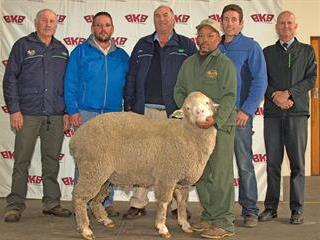Reacting to an announcement by the National Defence Force (SANDF) that the maintenance of border fences along the Zimbabwe/Limpopo and Mozambique/Mpumalanga borders have been outsourced, DA spokesperson on defence Rafeek Shah said the situation indicates a serious problem with skilled military capacity, and poses potential national security risks.
“High-security, technical information in the hands of civilians is simply unacceptable,” stressed. “is the only country in the world, to my knowledge, to engage private companies for national defence systems. It’s [usually] done by either the defence force or paramilitary force.” He said two security companies were contracted for R25,3 million. New Heights 66 Security Company is responsible for the Zimbabwe/Limpopo border and Buffalo for the Mozambique/Mpumalanga border.
Freedom Front Plus spokesperson for defence Pieter Groenewald said it’s no use building and maintaining the fences without support services from the Police Service (SAPS). “The most alarming fact is that only 651 members of the police service are responsible for policing the entire international border of SA, according to Charles Nqakula himself,” he said. roenewald said policing along the fences is virtually non-existent. “For example, members of the SAPS posted to sud-stations along the border are supposed to react according to a system of alarms installed in the fence.
I have it on good authority that the alarm systems are simply ignored, especially at night,” he said. Shah agrees. “If the National Defence Force (SANDF) no longer has the technical capacity to maintain border security, the SAPS certainly also does not. We should be seeing increased investment and delivery within both the SAPS and SANDF instead of increased outsourcing.” – Annelie Coleman SANDF to outsource
Farmers want a better crime plan
Organised agriculture wants an integrated solution to address crime in SA. So said TAU SA’s national chairperson for safety and security, Gideon Meiring, in a memorandum on rural safety presented to President Thabo Mbeki. He said an effective crime prevention and management plan was required that would be governed by an authoritative structure with substantial jurisdiction, and it should embrace the requirements of the farming community.
Meiring also addressed poor SA Police Service (SAPS) service delivery, the void left by the commandos and the high levels of violence and torture directed against the victims of farm attacks. T he memorandum stated that the theft of moveable property including vehicles, firearms, cash, products, tools, seed and chemicals amounted to R1 billion in 2006. And despite the valiant efforts of the stock theft unit, the annual loss was more than R357 million (35 500 head of cattle, 58 123 sheep and 24 038 goats).
Theft of fences, copper cables, arson and intimidation of farmers and farm dwellers were also addressed, as was the fact that internatisonal borders, such as the Lesotho border, were not secure. he following recommendations were made to government: New security measures should be supported by financial rebates. he Firearms Control Act should be reconsidered. Counter-crime measures against violent • • • criminals should be applied more vigorously. he lack of bulletproof vests, functional vehicles and firearms was the biggest challenge to reservists effectively reacting to a crime situation.
The policies guiding the implementation of sector policing needed to be finalised urgently, so that organised agriculture could assist with both sector policing and rural reservists. Financial provision needed to be made for the necessary equipment to effectively implement sector policing in rural areas and to finalise the sector policing policy. Government needed to act urgently to uphold the integrity of international borders.
Government should provide the necessary resources for the stock theft units to maintain and improve their performance. he dissolution of the Directorate of Special Operations would weaken the crime-fighting capabilities of government, and it should rather be incorporated under the Safety and minister as a fourth business unit, along with the SAPS, the Secretariat for and and the Independent Complaints Directorate. he National Pounds Act that has been with the agriculture department since April 2005 needs to be finalised urgently. The criminal justice system should ensure the speedy and effective apprehension of criminals, their processing by the judicial system and their secure and remedial isolation from society. – Robyn Joubert
Trust fund hard at work securing the platteland
The Agri Securitas Trust Fund has funded more than 75 crime-preventing initiatives in the farming areas of since its inception in 1999, said in its memorandum on safety and security, presented to President Thabo Mbeki.
Some of these included proactive crime information gathering in partnership with the Police Service (SAPS) in the Free State, which resulted in the prevention of more than 137 farm attacks in three years, the provision of radios and relay systems to improve communication in emergency situations and manage crime prevention operations, and the implementation of boom gates in the Eastern Cape to monitor the movement of vehicles with the assistance of the police.
The fund also financed brochures compiled by the defence force and the SAPS, providing farming communities with suggestions on how to prevent crime. It also provided trauma counselling workshops for victims of rural crime, while police and social workers were trained to deal with trauma cases. – Robyn Joubert









